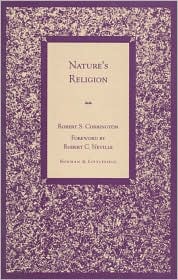

Professor Corrington has spent the past several decades developing his own philosophical system of Ecstatic Naturalism, which continues to unfold in a series of books and articles. Early in his career he brought together the perspectives of Continental phenomenology and American pragmatism in order to benefit from the descriptive care given to lived experience by both traditions. Peirce and Heidegger were early interlocutors, later augmented with a deep appreciation for the work of Justus Buchler, whose own metaphysics represents a radical break with the various traditions of Western philosophy.
Corrington has had a long-time interest in radical forms of psychoanalysis, particularly the work of Jung, Rank, Reich and Kristeva. Yet this is always shaped by a perennial return to Freud. The importance of psychoanalysis can be felt in the way that Corrington correlates, but never conflates, issues in validation with questions of over-determined origins for any powerful conceptual architectonic.
Of equal importance is high aesthetic culture and its intriguing correlation with recent theories in evolutionary psychology. The semiotics of culture has deep roots in biosemiotics and issues of sexual selection, Darwin's twin discovery along with natural selection.
Most philosophical cosmologies today commit an unwitting betrayal of some of the starker dimensions of evolution, often importing purpose into nature or positing some kind of desirable amelioration in the long run. Corrington's Ecstatic Naturalism, on the other hand, focuses on the undercurrents of sacred folds and their often unruly punctuation of the human process. This perspective affirms that nature is the genus of which histories are species. Thus, there is no such thing as 'the' History with a guiding purpose, there are only histories that do not have a collective import. Ecstatic Naturalism rejects the categorial structures of theism and Panentheism and engages in an uneasy dialogue with pantheism--a perspective that is notoriously difficult to define or shape with any precision. While it is not pantheistic in any historical sense, it shares with this perspective the ideas that nature is all that there is, that the divine therefore must be in and of nature, that all relational connections are finite and thus do not connect the self with 'everything,' and that, no matter what, nature always gets the last vote.




